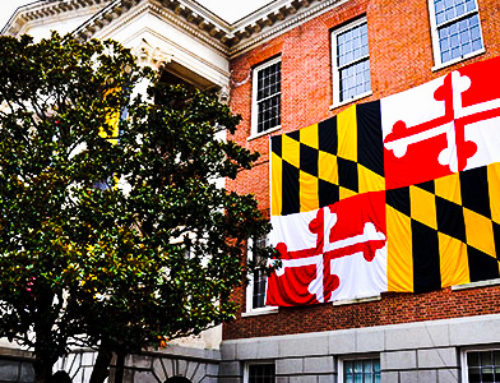View by Topic
Recent Articles
-
President Trump’s Bold Step to Rein in State Overreach in Climate ChangeSaturday, April 12th, 2025
-
Mandatory GHG Disclosures in Maryland Real Estate ContractsSaturday, April 5th, 2025
-
NYC Building Electrification Ruling is Interesting But Not a Game ChangerSaturday, March 29th, 2025
-
Greenpeace Ordered to Pay $667M in Blow to ActivismSaturday, March 22nd, 2025
-
The Most Consequential Day of Environmental Deregulation in American HistorySaturday, March 15th, 2025
View by Month/Year
“Green Building Law Update” Headlines
Recent Articles & News from
Stuart Kaplow’s blog
at GreenBuildingLawUpdate.com
- President Trump’s Bold Step to Rein in State Overreach in Climate Change April 13, 2025
- Mandatory GHG Disclosures in Maryland Real Estate Contracts April 6, 2025
- NYC Building Electrification Ruling is Interesting But Not a Game Changer March 30, 2025
- Greenpeace Ordered to Pay $667M in Legal Blow to Environmental Activism March 23, 2025
Subscribe to the Green Building Law Update!
Stuart Kaplow brings his expertise and extensive experience to the table with his unique digital publication, "Green Building Law Update". Subscribers receive regular updates to keep them informed about important issues surrounding Environmental Law, Green Building & Real Estate Law, as well as the emerging demand for Environmental Social Governance (ESG).
Get fresh content through the lense of Stuart Kaplow's cutting-edge expertise, innovative commentary and insider perspective. Don't miss another issue! Subscribe below.
Court Rules Licensees On Liquor License Do Not Own Their License
In a case of first impression, the Maryland Court of Special Appeals has ruled that the “issuance of a liquor license is not necessarily coincident with the ownership thereof.”
The case of Rosedale Plaza Limited Partnership v. Lefta, Inc., et al. is particularly important to all who do business with the owners of liquor licenses, including landlords of restaurants and bars, because the Court concluded that “the license is not subject to levy by creditors of the individual licensees.”
Noting the complicated underpinnings of this case, the Court commences the 16-page opinion lamenting that “like Theseus, however, we must follow Ariadne’s string to extricate ourselves from the labyrinth.” Most simply viewed, the landlord here, obtained a monetary judgment against the three guarantors of a restaurant lease, who were also the three licensees on the relevant liquor license. The corporate tenant filed a bankruptcy petition and the issue of whether or not the liquor license was property of the estate in the bankruptcy case eventually found its way to the Court of Special Appeal.
The decision is troubling for many involved in the alcoholic beverage business because the statute, Article 2B, Section 9-101, provides “a license may not be issued to a … corporation …” The Court even goes on to remark that the language “is clear that a liquor license may not be issued to a corporation.” But the Court reasons that it does not necessarily follow that a corporation cannot “own” a liquor license. The Court writes, “Technically, the license is issued to the named individuals, but that is in name only. The true result is that the corporation actually owns or ‘holds’ the license.”
Recognizing that this case was brought by a landlord judgment creditor of a bankrupt corporate tenant and the three licensees who were also guarantors on the lease, those that conduct business with the alcoholic beverage industry will think this case to have a harsh affect.
The case does resolve the heretofore unanswered question of who owns a liquor license in Maryland. The Court determined that when individual licensees are issued an alcoholic beverage license for use by a corporation the license is held and owned by the corporation. Such is instructive, particularly in the landlord tenant context, when landlords wish to enter into leases with the entity that owns the asset that is the liquor license and further desire to take a security interest in that license. It is now clear that the security interest must, at a minimum, be obtained from the corporate entity.
Landlords and others who obtain security interests in liquor licenses should review existing security agreements to make certain that the corporate owner of the license has executed those writings.









